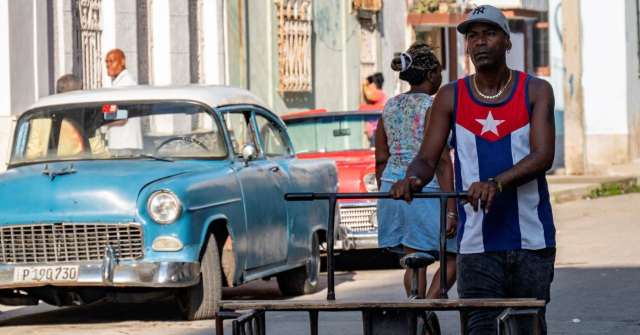Russia is proposing the creation of an alternative “Silicon Valley” tech company cluster on Cuba’s Isla de la Juventud island for companies within the BRICS anti-U.S. bloc and Eurasian Economic Union (EEU) countries in Latin America, the Cuban state media outlet Cubadebate reported over the weekend.
According to Cubadebate, the proposal, called Cayo Digital (“Digital Key”) will occupy a 450-hectare area in Isla de la Juventud and will be mainly focused on the development of “artificial intelligence, virtual and augmented reality, digital art, and sustainable technologies.”
The proposal would reportedly be supported by both Russia’s Industry and Digital Development and Communications Ministries, as well as the Russian trade office in Cuba and the Russian Agency for Strategic Initiatives. According to the Cuban state outlet, the project is scheduled for completion by 2032 with the first “research centers and innovative plants” to be finished before 2030 and residential complexes following between 2026 and 2028.
Initial “practical steps” for the proposal, Cubadebate detailed, were addressed by Cuban and Russian representatives at a July meeting in Moscow that included businessmen, investors, and government officials of both nations.
“Digital Key is designed as a technological hub with the capacity to accommodate up to 15,000 residents: 12,000 specialists and 3,000 students,” Cubadebate stated. “Its implementation involves the construction or renovation of infrastructure necessary for the life and work of its inhabitants: offices, laboratories, industrial plants, residences, shops, a shopping center, sports, cultural, and recreational facilities.”
“The cluster would also have daycare centers, schools, and university branches. The project’s authors emphasize the importance of ensuring high-quality communication routes and services such as gas, water, electricity, sewage, and garbage collection,” the outlet continued.
The proposal was reportedly presented by Alexandr Vólkov, director of the Moscow-based software firm GenIT, a company with a presence in Cuba since 2023 and sanctioned by the United States in 2024 for its links to Russia’s military-industrial base. Vólkov reportedly claimed during the project’s presentation that there is “high demand” in Latin America and the Caribbean for Russian information and communication technology solutions. This demand is allegedly being fed by a “growing trend” of regional distrust of Western technology offerings “given that they often have intentional vulnerabilities, including those designed to steal personal data or interfere with the operation of electronic devices.”
The Russian representative explained that Cuba is being proposed as the headquarters for the prospective tech hub due to its “historical and cultural proximity” to Russia and its cooperation with Russian companies, describing the communist-ruled nation as “not afraid of sanctions from the West” and pointing out its connections with other nations in the region “which facilitates access to neighboring markets.”
According to Vólkov, Russian companies offer their customers “sovereign IT infrastructure” as part of a so-called “on-premise” model, where “both data and software are stored within the company’s premises, avoiding the risks of the cloud.” The Russian representative further claimed that Russian financial tech companies have “repeatedly outperformed their Western counterparts.”
Cubadebate did not explain in its report how the Russian proposal would address the challenge of Cuba’s derelict and barely functional power grid brought to a state of near-complete ruin by decades of mismanagement by the Castro regime. Cuba’s power grid collapsed several times this year and is constantly on the verge of a total collapse.
Although Isla de la Juventud enjoys its own power grid separate from that of mainland Cuba, the island is no longer exempt from Cuba’s near-endless blackouts. Reports published in June by Cuban outlets detailed that the Castro regime began implementing mandatory rolling blackouts in Isla de la Juventud, whose power plants can no longer generate enough electricity to cover the island’s demand.
As of late June, it is estimated that Isla de la Juventud’s power plants produce less than half of their originally installed capacity. The independent Cuban outlet 14 y Medio reported in June that the Castro regime punishes Isla de la Juventud entities that do not comply with their “power rationing” measures with a seven-day electricity service suspension.
Christian K. Caruzo is a Venezuelan writer and documents life under socialism. You can follow him on Twitter here.
Read the full article here


